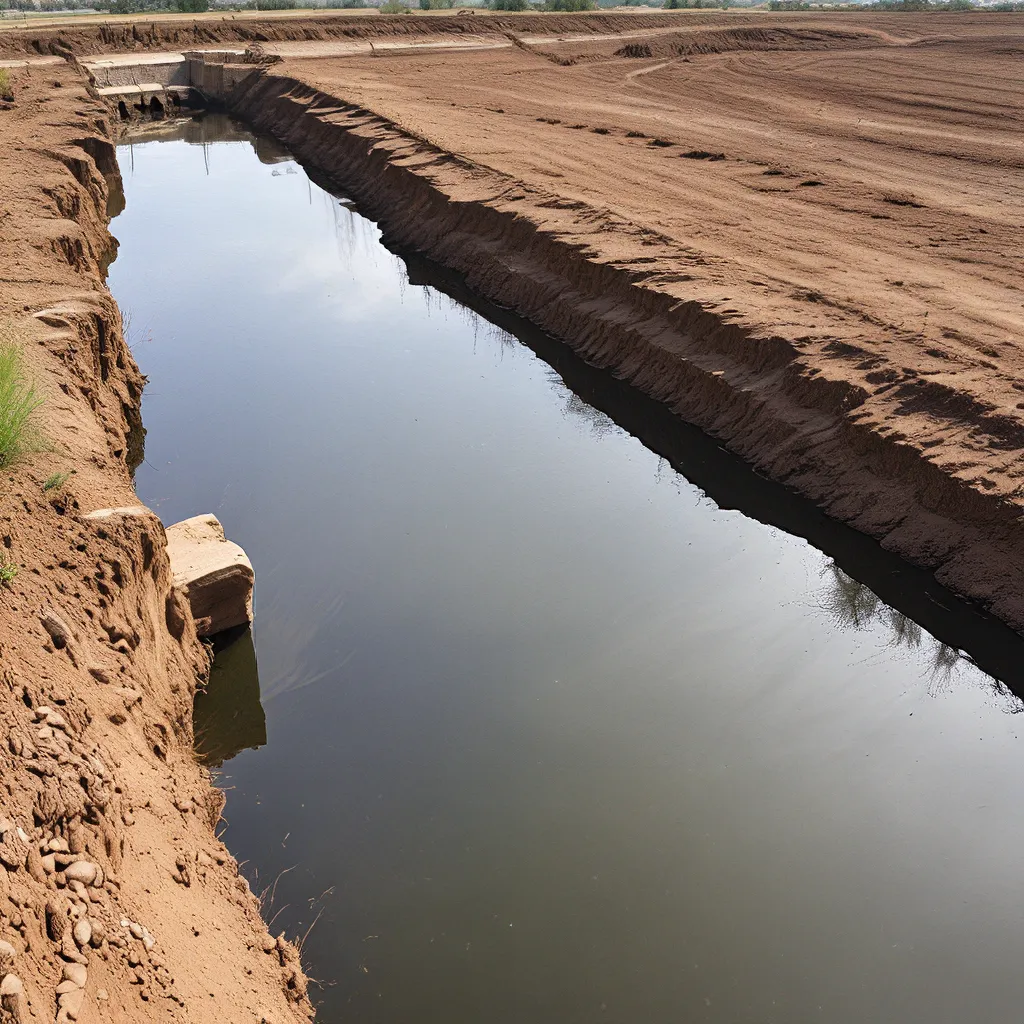
As the world grapples with the increasing challenges of water scarcity and climate change, finding innovative solutions to secure our water resources has become a pressing priority. One such promising approach is the strategic reuse of wastewater for groundwater replenishment. By harnessing the power of this sustainable practice, we can not only address water shortages but also build resilience against the unpredictable impacts of a changing climate.
Unlocking the Potential of Wastewater Reuse
Wastewater, often viewed as a waste product, is actually a valuable resource that can be transformed into a reliable water supply. Through advanced treatment technologies, wastewater can be purified and converted into high-quality reclaimed water suitable for a variety of applications, including irrigation, industrial processes, and even drinking. By reducing our reliance on limited freshwater sources, this approach helps alleviate the strain on our water infrastructure and ensures a more sustainable future.
One of the most innovative applications of wastewater reuse is its role in groundwater replenishment. Managed Aquifer Recharge (MAR) techniques involve directing treated wastewater into underground aquifers, where it can be stored and accessed as needed. This process not only replenishes depleted groundwater reserves but also protects water quality by filtering the water through natural geological formations.
The Perth Groundwater Replenishment Scheme: A Shining Example
A prime example of this sustainable water management approach can be found in Perth, Western Australia, where the Groundwater Replenishment Scheme has been making waves. This pioneering project, led by the Water Corporation of Western Australia, harnesses the power of wastewater reuse to create a reliable, climate-independent water source for the city.
The scheme works by diverting treated wastewater from the Beenyup Wastewater Treatment Plant and injecting it into the Yarragadee aquifer, one of the region’s largest underground water reservoirs. This process not only replenishes the aquifer but also protects the water from evaporation and contamination, ensuring a stable supply even during periods of drought or low rainfall.
The benefits of this innovative approach are multifaceted. By reducing reliance on surface water sources, which are vulnerable to the impacts of climate change, the Groundwater Replenishment Scheme enhances the city’s water security. Additionally, the reclaimed water produced by the scheme meets stringent water quality standards, making it safe for a wide range of applications, including drinking. This integrated water management strategy is a shining example of how wastewater reuse can be leveraged to address water scarcity and build climate resilience.
Integrating Water Recycling and Desalination for a Sustainable Future
Wastewater reuse is not the only innovative strategy being employed to tackle water scarcity. Water recycling and desalination are also playing crucial roles in enhancing the sustainability and resilience of our water systems.
Water recycling involves treating wastewater to a high standard, allowing it to be reused for various purposes, such as irrigation, industrial processes, and even potable water. By reducing the demand for freshwater, this approach alleviates pressure on natural water resources and promotes a more circular water economy.
Desalination, on the other hand, converts seawater or brackish water into freshwater, providing an alternative water source that is resilient to the impacts of climate change. Advancements in desalination technology have made the process more energy-efficient and cost-effective, making it a viable option for coastal and arid regions around the world.
Singapore’s Public Utilities Board (PUB) has been a global leader in integrating water recycling and desalination into its water management strategies. Through innovative initiatives like the NEWater program and the Marina Barrage desalination plant, PUB has secured a sustainable and resilient water supply for the city-state, reducing its vulnerability to climate variability and water scarcity.
Harnessing the Power of Stormwater Harvesting
Another promising strategy for enhancing water security is stormwater harvesting. In urban areas, significant runoff is generated during rainfall events, often leading to flooding and pollution. Stormwater harvesting captures and stores this valuable water resource, treating it to remove contaminants and making it available for various non-potable uses, such as landscape irrigation and industrial processes.
Melbourne, Australia, has been at the forefront of stormwater harvesting initiatives, developing comprehensive systems to harness this resource. By capturing and reusing stormwater, the city reduces the burden on its freshwater supplies, enhances urban flood management, and mitigates the environmental impact of urban runoff. This innovative approach not only addresses water scarcity but also promotes sustainable urban water management.
Exploring the Frontiers of Water Resource Management
As we navigate the complexities of water resource management, it is crucial to stay informed and embrace the latest developments in the field. From groundwater replenishment and water recycling to desalination and stormwater harvesting, the opportunities to secure a sustainable water future are abundant.
By integrating these innovative strategies into our water management practices, we can enhance water security, build climate resilience, and protect our precious natural resources for generations to come. As the experts at Alpha Wastewater Services can attest, embracing a holistic, sustainable approach to water management is the key to addressing the pressing challenges of water scarcity and climate change.
So, let us embark on this exciting journey of discovery and innovation, exploring the frontiers of water resource management and shaping a more resilient and _sustainable future for all.